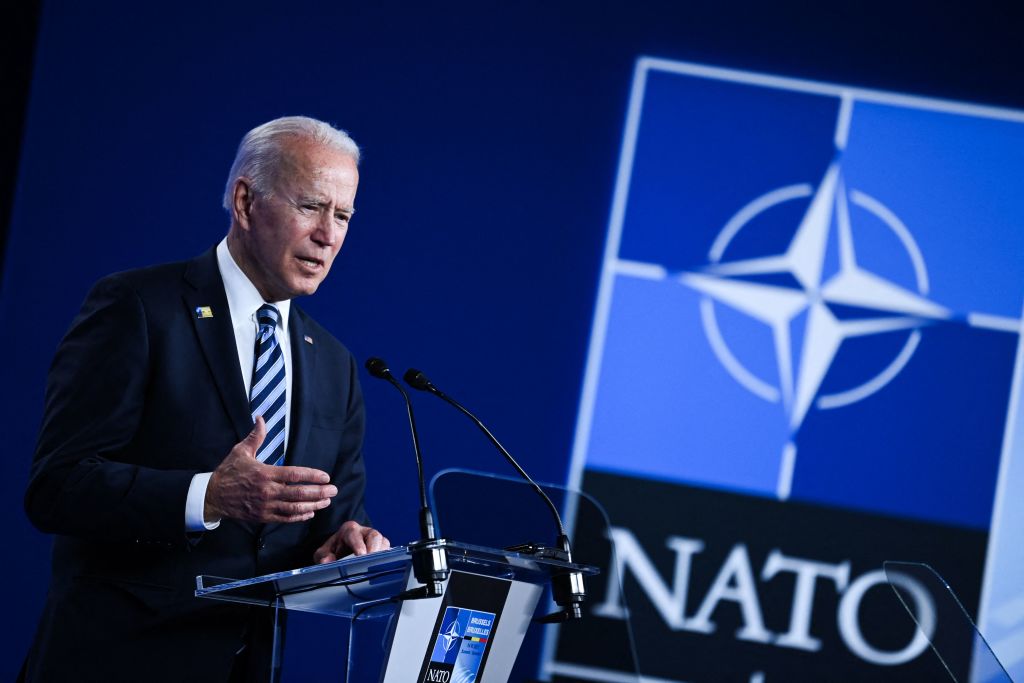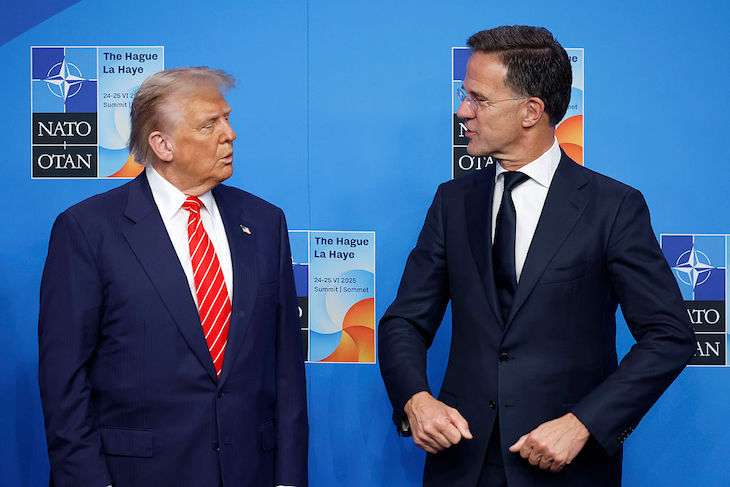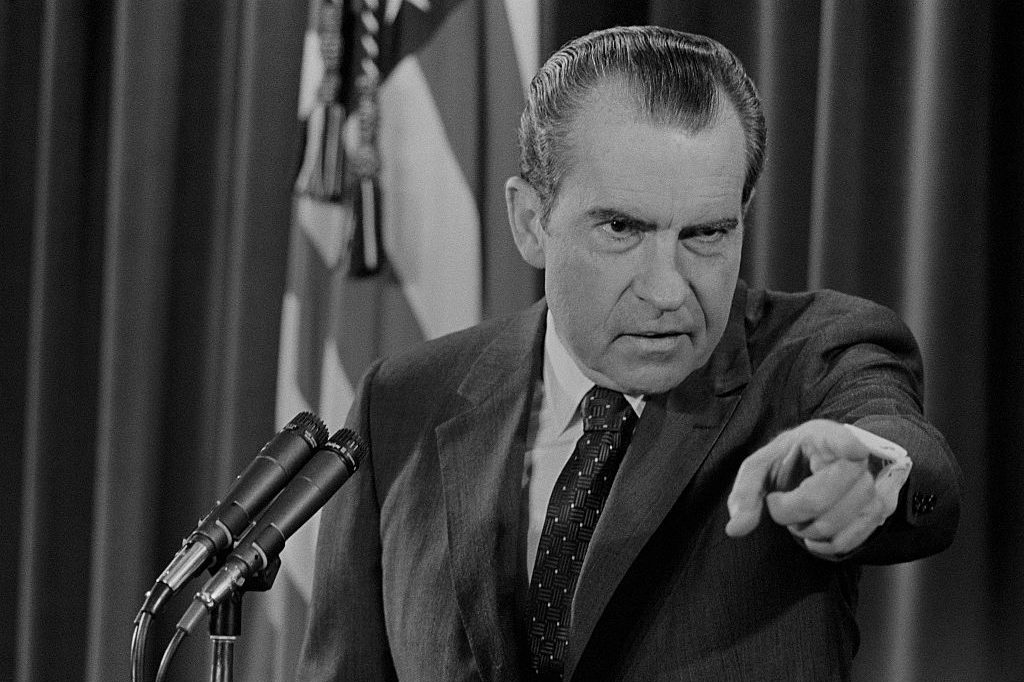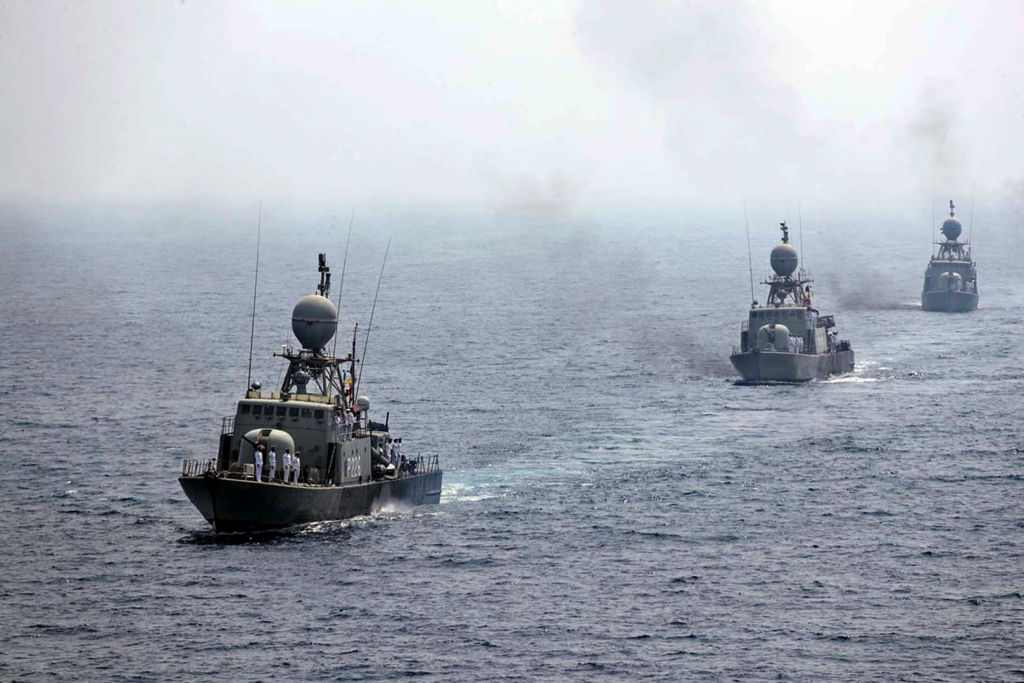It’s springtime for liberal interventionism. Russian president Vladimir Putin may not have intended it, but he is doing a good job of revitalizing NATO. The organization was faltering only a few years ago. Now, by threatening Ukraine, Putin is probably extending its lifespan by several more decades, a feat that even the most ardent Atlanticists in Washington could not have accomplished on their lonesome.
Recall that after the Iraq war, realism was in vogue. The talk was about restraint and realism, national interests and sobriety. President Donald Trump inveighed against the chiselers in Europe who were free-riding off of American largesse. President Joe Biden pulled out of Afghanistan.
And now? Biden is sending arms to Ukraine. Several thousand troops may be sent to Europe as well. House speaker Nancy Pelosi is requesting an all-members briefing on Ukraine for what The Hill calls “a rare bipartisan point among lawmakers.” The laggard Germany, which retains vivid memories of its last incursion into die Ukraine, is being pilloried by the pundit class for failing to stand up to Putin.
NATO Secretary General Jens Stoltenberg is loving it: “I welcome allies contributing additional forces to NATO,” he said. “NATO will continue to take all necessary measures to protect and defend all allies, including by reinforcing the eastern part of the alliance. We will always respond to any deterioration of our security environment, including through strengthening our collective defense.” The Kremlin is denouncing it all as “hysteria.”
But for Biden a new confrontation with the Kremlin could be just what the doctor ordered to revive his ailing presidency. For one thing, it would polish his reputation in Washington, where the regnant elites have been pining for a new cold war ever since the old one ended. Then there is the fact that standing up to Putin can help efface the memories of the Afghanistan imbroglio.
Couple a new cold war with the end of the Covid pandemic in about two months and Biden may well be riding high. Why else would he in essence have invited Putin to invade Ukraine during his press conference last week? He knows that a foreign policy confrontation, especially one redolent of the cold war, can help boost his ratings. The commander-in-chief, you could say, wants to look commanding.
If Putin, as Fiona Hill avers in the New York Times, believes he can force America off the European continent, he should think again. She posits, “Forging a united front with its European allies and rallying support should be America’s longer game. Otherwise this saga could indeed mark the beginning of the end of America’s military presence in Europe.” In truth, the reverse seems more likely. Putin’s saber-rattling is prompting Biden to hunker down in Europe, much as he might prefer to look east toward China.
The blowback from a Putin glacis in Ukraine will be immense in Washington. Republicans are already primed to depict Biden as a new version of Neville Chamberlain at Munich in 1938, an old duffer who is in over his head. There is simply no way that Biden can afford to look weak after the Afghan contretemps. And Biden knows it. Does Putin?

























